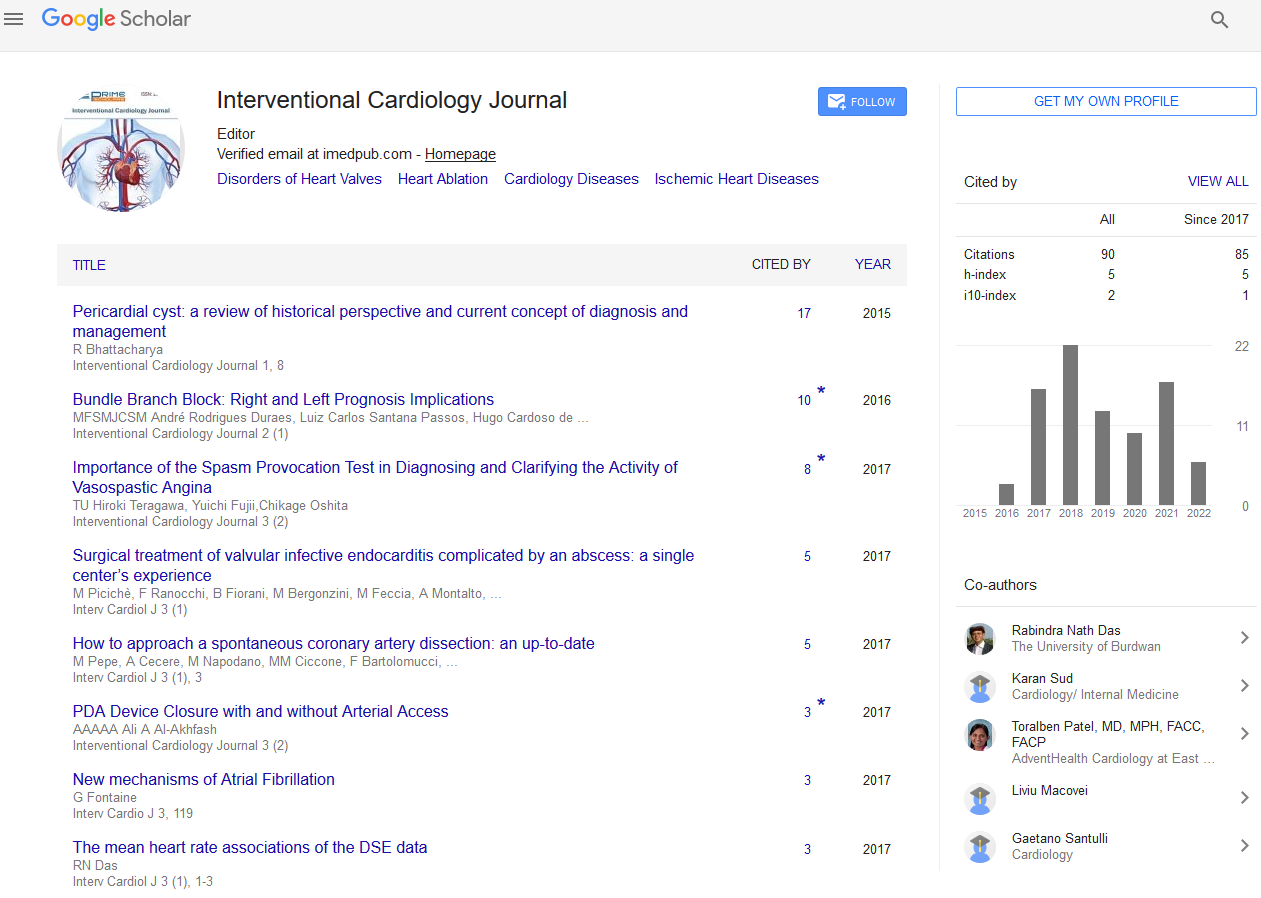Short Communication - (2021) Volume 7, Issue 2
Risk Evaluation of Cardiovascular Diseases among Childrenâ??s
Ramyashubha Chiyyadri*
Master of Pharmacy, QIS Collage of Pharmacy, Prakasam, India
*Corresponding author
Chiyyadri RS
Master of Pharmacy, QIS Collage of Pharmacy, Prakasam, India
Tel: +91 8341937060
Email: ramyachiyyadri0045@gmail.com
Citation: Chiyyadri RS (2021) Risk Evaluation of Cardiovascular Diseases among Children’s. Interv Cardiol J Vol.7 No.2:113
Abstract
Risk factors at the cardiovascular diseases are present in childhood however cardiovascular disease arises during adulthood. This article presents the main studies that describe the importance of investigating the risk factors for cardiovascular diseases in childhood and their internal activities. Significant rates of hypertension, obesity, dyslipidaemia and sedentariness occur in children and adolescents. Blood pressure needs to be measured in childhood. An increase in arterial blood pressure in young people predicts hypertension in adulthood. The death rate from cardiovascular disease is lowest in children with lower cholesterol levels and in individuals who exercise regularly will affect the lower cases only. In addition, there is a high prevalence of sedentariness in both children and adolescents.
Cardiovascular diseases are the one of the leading public health problem and in some severe cases it leads to cause death also. Cardio-vascular disease plays a major role in the initiation of progression of the cardiovascular diseases. The fundamental issue has been the timing of the development of cardiovascular regions. Several cardiovascular risk factors such as obesity, dyslipidaemia, hypertension and physical inactivity show retention tendency from child’s age and adolescence to adult age, while affiliated risk factors significantly accelerate atherosclerosis process. Irreversible atherosclerosis changes happen only at in mature age therefore control of atherosclerosis in childhood is of unusual significance. The clinical characteristics of childhood onset renal insufficiency is very different from the of adult onset diseases therefore risk factors and markers for cardiovascular diseases in children and Young adults who are living with a kidney transplant need to be assessed. At-risk lowest populations include patients with congenital heart disease and Kawasaki disease without detected coronary involvement and cancer treatment survivors.
Children with a family history of premature cardiovascular disease or significant hyper-cholesterolemia should be scanned for familial hyper- cholesterolemia using a fasting lipid profile beginning at 2 years of age and then every 4-6 years through adulthood even if previous profiles are within normal ranges. Treatment for heterozygous familial hyperlipidaemia should include statins, low saturated fat diet high in fibre, frequent daily exercises and a smoke-free environment. Having a body mass index outside the normal range significantly worsens risk parameters for cardiovascular disease in school aged children. This effect already considerable in overweight children, increases in obesity and could be larger than previously thought.

